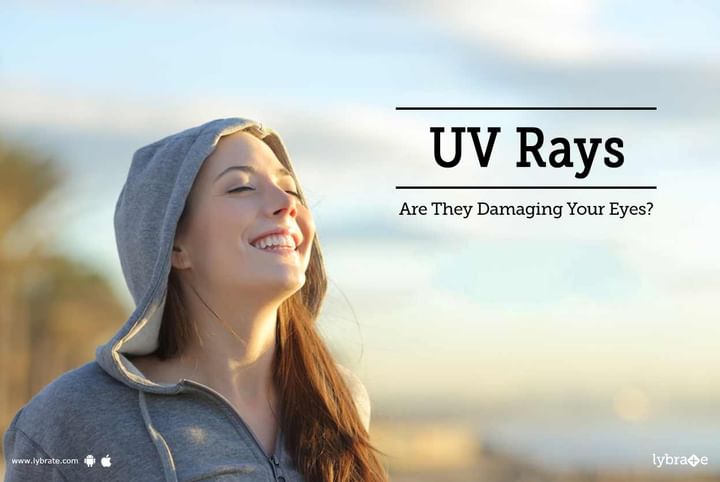UV Rays - Are They Damaging Your Eyes?
People are well aware of the harmful effects that UV rays have on the skin, but very few know that UV rays can damage their eyes as well. The tissue that human eye is made up of is one of the most sensitive tissues in the body and hence, the most vulnerable. The increasing level of UV radiation reaching the Earth’s surface every minute has made it indispensable to take the required precautionary measures to protect the eyes.
What are UV rays?
Sunlight consists of 3 types of radiations - Infrared, Visible light and UltraViolet. Artificial sources like lasers, tanning beds and welding machines also emit UV radiation.
There are three types of UV radiations - UV-A, UV-B and UV-C.
UV-C is absorbed by the ozone layer and does not possess any risk. It is UV-A and UV-B radiations that adversely affect the eyes and vision.
Impact of UV rays on eyes
Too much exposure to UV rays can affect vision, harm the eyes, and deteriorate overall eye health. There are various eye problems that are aggravated by excessive exposure to UV radiation:
- Macular Degeneration: It is caused by damage to the retina over time by UV rays. It leads to age-related blindness. Too much exposure to UV rays increases the risk of developing macular degeneration.
- Cataract: It is the clouding of eye’s natural lens - the part of the eye that focuses the light we see. Too much exposure to UV rays increases the risk of developing cataracts.
- Pterygium: Often known as ‘surfer’s eye’, pterygium is a pink, non-cancerous growth that is formed on the conjunctiva. UV rays are believed to be responsible for the development of this growth.
- Skin Cancer of the Eyelids: Too much exposure to UV rays can cause skin cancer in and around the eyelids.
- Photokeratitis: Popularly known as corneal sunburn or “snow blindness”, photokeratitis is caused due to excessive short-term exposure to UV-B rays. Photokeratitis occurs when you spend long hours at the beach or skiing. It sometimes leads to temporary vision loss.
How to protect the eyes from harmful UV rays?
Here are some tips to help ensure that eyes are protected against harmful UV rays:
- Always use quality sunglasses that block out 99-100 percent of both UV-A and UV-B radiation when outdoors.
- Stay away from tanning beds, and if you use them occasionally, always wear eye protection.
- Wrap around frames should be used if you spend a lot of time outdoors.
- Be sure to see your doctor at least every two years.



+1.svg)
